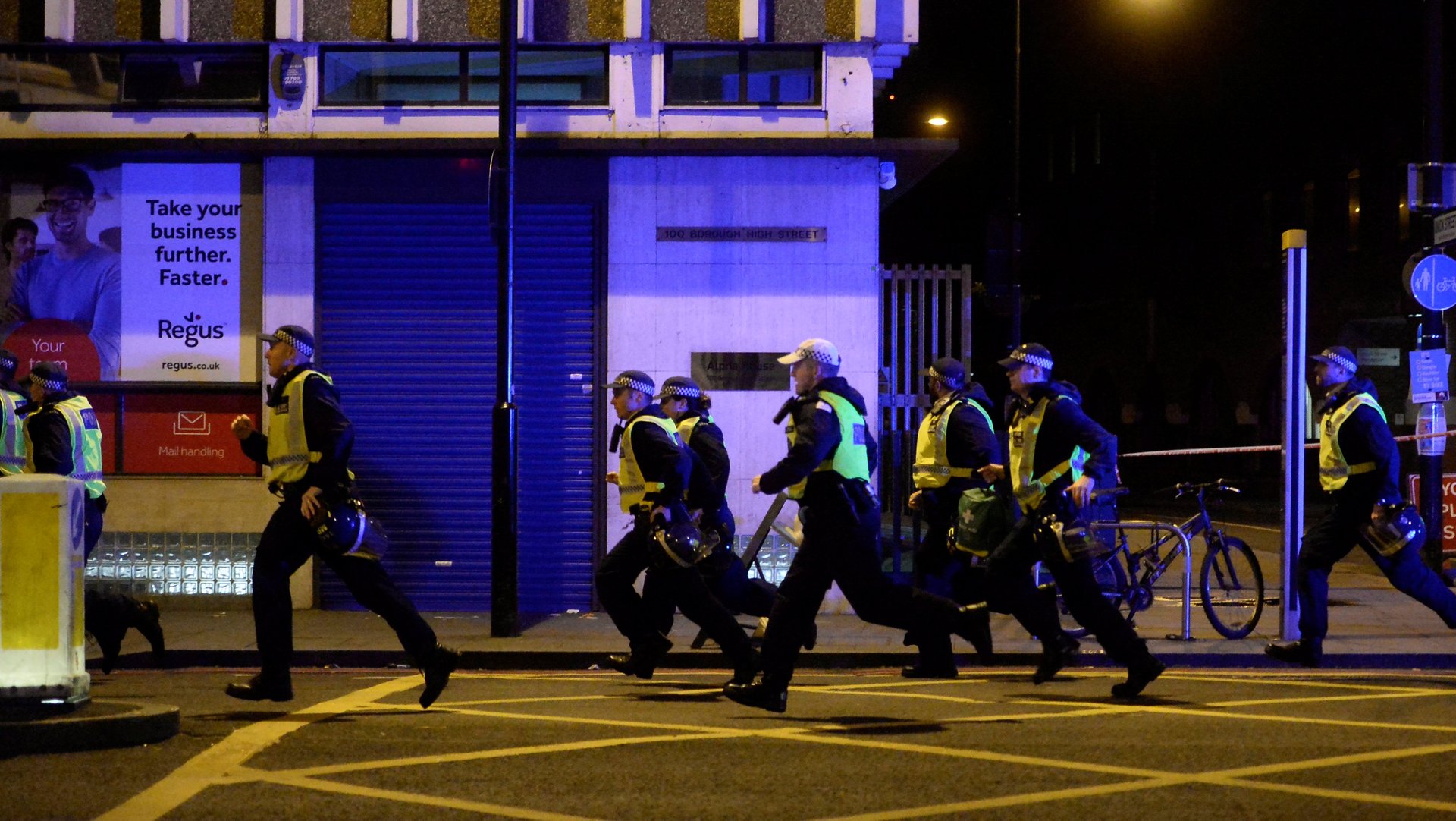How to talk to your kids about the London terror attacks
Note: This post was updated on June 4 with details about the latest terror attack in London.


Note: This post was updated on June 4 with details about the latest terror attack in London.
On June 3, the UK suffered its third terror attack since March. In London, at least seven people were killed and 48 have been taken to hospitals after a van rammed pedestrians near London Bridge on Saturday night. Three attackers emerged from the van and stabbed people around London’s popular Borough Market, a hub of restaurants and bars. The police shot three suspects.
The attack comes only two weeks after 22 people died, many young children, and more than 60 were injured when 22-year-old Salman Abedi set off a bomb at an Ariana Grande concert in Manchester on May 22. In March, five people died and more than 50 were injured when Khalid Masood, 52, drove his van into pedestrians on London’s Westminster bride before getting out and attacking others with a knife.
Around-the-clock reporting will dominate the news and social media in the coming days, leaving parents wondering what to tell their children, if anything at all.
Terror attacks are sadly becoming common place news. After the brutal November 2015 terror attacks in Paris, Quartz wrote a guide for parents about how to discuss scary news. Many will opt to say nothing, especially if their children are young, not in school, or do not have older siblings. Others will have no choice, knowing that their kids will likely hear some version of the news in class, on the football pitch, or on the web.
Below is a condensed, edited version of the guide—for the full version click here.
After the horror of the Paris attacks that killed at least 129 people and injured another 300, parents had to figure out what to say to their kids, and when.
For kids around six and older, the time is now.
If parents don’t frame something like the Paris attacks for kids, their own vivid imaginations or some other kid on the playground will. At that point, there is no guarantee that the framing will be accurate, age-appropriate, or thoughtful enough to teach something useful. Starting a conversation—no matter how basic—sends the message that the door is open and questions are welcome.
“Don’t delay telling your children,” Harold Koplewicz, president of the Child Mind Institute, told Time. “It’s very likely that your child will hear about what happened, and it’s best that it comes from you so that you are able to answer any questions, convey the facts, and set the emotional tone.”
My seven-year-old figured out what was happening pretty quickly, so I told my five-year-old: “Some bad people attacked a small number of people in Paris. The police are on it. It is very sad.”
High school kids are both easier and harder: they will know from their own media-saturated world what has happened, so parents need to find the time and space to discuss the issues surrounding it: racism, religion, extremism, ethics, politics.
With younger, school-aged children, parents need to offer age-appropriate information and stay calm.
Kids like control: parenting is often the necessary façade of offering it.
Validate their feelings
The worst thing to say to a child who says: “I am scared” is to respond, “there is no reason to be scared.”
Acknowledge their fear or sadness while looking for ways to make them feel safe.
“If they’re scared, say ‘Lots of kids and even adults feel scared. That was scary,” writes Ellen Hendriksen on Savvy Psychologist. Acknowledging your own fear, or sadness, shows it is okay to be scared.
If you dismiss the fear, kids “will feel dismissed and learn you’re not someone who’s safe to talk to,” Hendriksen writes.
Ask open-ended questions
More information is better than no information, after a certain age. But too much information can be overwhelming.
Ask kids “what have you heard about what happened in Paris?” and then let them talk. If it’s nothing, you can choose whether to fill in the void so they have a grounding when it comes up. “For kids this age [6-11], knowledge can be empowering and helps relieve anxiety,” Koplewicz told Time.
But refrain from a history of ISIL. “Leave out details that may create increased fear or compromise your child’s sense of safety,” writes Ritamaria Laird, an expert in pediatric mental health in Chicago. “Remember, your main goal is to convey a sense of security for your child. Listen to your child and provide information based on your child’s questions.”
Remind them about the security all around them
Kids love learning about the police when they are little because they inherently believe in authority. Remind them of all the people in their lives who can protect them: teachers, coaches, babysitters, grandparents, police, security guards, soldiers. If they are suddenly scared to leave you, talk about all the times you have been separated and then reunited. Ask them what would make them feel safe. Listen. Talk about heroes to counterbalance stories of terrorists.
Teach them the broad lesson they need to learn
Kids love to divide the world into good guys and bad guys. After an event like Paris, it is important to contextualize the bad guys for what they are: a tiny minority.
Many of us would love to keep reality at bay for as long as possible. We cannot. Our kids know more than we realize, and they need us to make sense of nonsensical things.